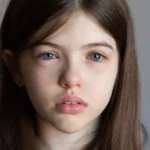Side effects of cancer treatment can be seen in both the short and long term, which negatively influence patients’ life.
Cancer is a group of cells involving abnormal cell growth with the potential to invade or spread to other parts of the body.
There are many cancer treatments available, like chemo, hormone, radiation therapy, surgery, and medication which also have side effects.
Early diagnosis and then treatment is the only way to stop cancer cells to spread other body organs.
Check Breast Cancer: Reason, Signs, And Symptoms
Short-term side effects of cancer treatment
Contents
Nausea and vomiting
Nausea is when you feel sick to your stomach it’s like – you are going to vomit.
Cancer treatment like chemo, and radiation therapy, is called chemotherapy-induced nausea and vomiting (CINV).
Where require high doses of chemotherapy can lead to nausea and vomiting (5)
However, vomiting can not lead to a serious health issue but may lead to weight loss, weakness, dehydration, malnutrition, etc
Fatigue
People often feel weak, tired, heavy, and low energy due to their own cancer. but why?
Some cancers release proteins called cytokines, which are thought to cause fatigue.
It is believed that this type of fatigue during or after treatment is due to exhaustion, physical, and mentally most of the time.
However, fatigue after cancer treatment is the most common side effect.
Check Out – Can Meditation Treat Fatigue? If Yes, So How?
Diarrhea
In which our stool becomes loose and watery, however, in most cases, it goes away on its own within a few days.
Certain cancer treatments can cause diarrhoea, where high drugs dose (chemotherapy), radiation, and target therapy (used to kill cancer cells).
However, some cancer signs are diarrhea, but some medication, infection, and stress can also cause diarrhea (7).
Decreased appetite
Appetite decrease or poor appetite is another common side effect of cancer and its treatment.
Cancer-related fatigue can also lower your appetite (8).
Ongoing not eating enough food can also lead to serious health issues, like feeling weak, losing weight, or are dehydrated, etc
So make sure, to eat enough food, and plenty of drink, and do some physical activity to recover fast.
Changes in taste
During or after treatment the smell and taste of food may be different for you, and it makes food less attractive leading to poor appetite.
It often results from chemotherapy agents that can change taste buds, it can be due to radiation to the head and neck area.
Which affects saliva or its production which makes it hard for food to swallow.
Check Out – Taste Buds: Changes In Buds, Home-Remedy
Pain
This is the most common side effect of cancer treatment, especially after surgery, where a particular tissue of the body is removed.
The pain usually occurs when a tumor grows, it creates pressure on nerves, muscles, organs, and bones, which triggers pain receptors.
Hair loss
Some types of cancer therapy like radiation or chemotherapy can cause hair loss on the part of the body that is being treated.
Hair loss is also called Alopecia. but why hair loss?
During chemotherapy where drugs are so powerful, they attack fast-growing cancer cells.
Unfortunately, these drugs also attack our other rapidly growing cells including hair, but after some time hair will grow once again.
Check Out – Hair Loss In Females: Reason, Tips to Control, And Precautions
Constipation
Cancer treatments such as chemotherapy (high-power medication) and if not take enough fluid intake, then it definitely cause constipation.
Constipation is that condition, In which our stool becomes hard, lumpy, and dry, which creates stiffness or pain while leaving.
Check Out – Home-Remedies To Help Relieve Constipation Naturally
Dry mouth
As we know that there are several treatments for cancer, and one of them is radiation and chemotherapy.
It may cause dry mouth by damaging the salivary gland, radiation therapy, especially above the neck can cause dry mouth.
Dry mouth is also seen during treatment which is normal (14).
It can take 6 months or even longer time for the salivary gland to start again producing saliva again after treatment.
Flu-Like Symptoms
Some therapies like chemo and immunotherapy can increase the body’s natural immune response, which can cause flu-like symptoms.
This can stay for a few hours or even days after treatment (4).
If you experience any type of discomfort with fever or if the fever becomes mild to severe, then talk to your doctor.
Long-term side effects of cancer treatment
Risk of other diseases
Yes, it is true that after cancer treatment people are more prone to the risk of another illness, infection, and diseases.
Because cancer treatment like chemo, radiation, and other therapies can also affect other body organs, which make them weak.
Also, ongoing lifetime medication can weaken your immune system, and a weak immune body is a high risk of illness.
Here are the most common diseases caused after cancer treatment include:
- diabetes by affecting insulin
- Heart attack
- high blood pressure
- lung issue
This can be seen in the long term, especially in older age. So precaution is very important.
Fertility issues in both men and women
Cancer treatment may harm reproductive organs and glands that control fertility (7).
Treatment like chemo, hormone, and radiation therapy can damage sperm production bay in men.
Chances are increased when therapy is performed or nearby on sperm or egg affecting the area (15).
It can happen due to many other issues including:
- Affect ovary
- polycystic ovary syndrome
- low sperm count due to unhealthy lifestyle, certain medication, etc
Early menopause
Its seen in many women that after cancer treatment women has early menopause.
EM happens before the age of 45 after the age of 40 then is called EM. it affects about 5% of women under the age of 45.
Surgery, chemo, radiation, ovarian cancer, and other cancer can cause women to start early menopause, it is called induced menopause.
Ovary cancer, removing the ovary, or radiation near your ovaries can cause early menopause (8).
Check Out – Natural Ways That Can Reduce Menopause Symptoms
Reduced lung capacity
A 2018 Report indicated the lung toxicity of chemotherapeutic agents and radiation therapy in cancer patients.
Lung cancer is a leading cause of cancer deaths worldwide about 2 million people and resulted in 1.8 million deaths (10).
Research has shown that 15-20% of men and around 50% of women with lung cancer are non-smokers (7).
Other non-cancer lung conditions like asthma, COPD, and allergy can also reduce lung capacity.
a non-cancer lung condition, like asthma, COPD, or an allergy
Memory problems like Delirium
Delirium is a serious mental issue, where a person’s ability of thinking affect leads to confusion and reduced awareness of surroundings.
Confusion is the most common sign that cancer or treatment is affecting the brain.
It is a common problem for people with any advanced illness like advanced cancer or those at the end of life (14).
It’s often temporary, but it may be permanent because of problems with organ failure (8)
Lymphedema
It is a condition where lymph fluid does not drain properly, usually affecting the arm or leg.
This happens when the lymph system is damaged or blocked due to surgery, to remove lymph nodes and radiation therapy.
According to cdc.gov, it can be caused by cancer or cancer treatment when lymph nodes are removed (10).
Sexual health issues in both men and women
Many problems that affect a man’s sexual activity during treatment may temporary and permanent after treatment ends (9)
Chemo, radiation, hormone, surgery, and medicine may affect your sex drive, which lowers testosterone levels, and libido.
Like similar men, women’s estrogen levels (a hormone that plays a vital role in normal sexual and reproductive life) also decrease with cancer treatment.
Check Out – Food That Boosts Testosterone Level Naturally
Weak immunity
Pain can suppress the immune system, which increases the recovery time that interferes with sleep, and your mood.
Cancer itself can suppress the immune system and cancer treatment can lower the number of WBC and other immune cells.
Check Out – Immune System | Work, Parts, Boost, And More
Other side effects
Many other side effects of cancer treatment may be seen in individuals including:
- Neutropenia (occurs when a person has too low white blood cells)
- more chance of Infection
- nerve problem
- headache
- Osteoporosis (Cancer is a major risk factor for bone loss and fractures (9)
- mouth and throat issues
- skin and nail changes (10).
- The cancer treatment area may change appearance after a long time in life



